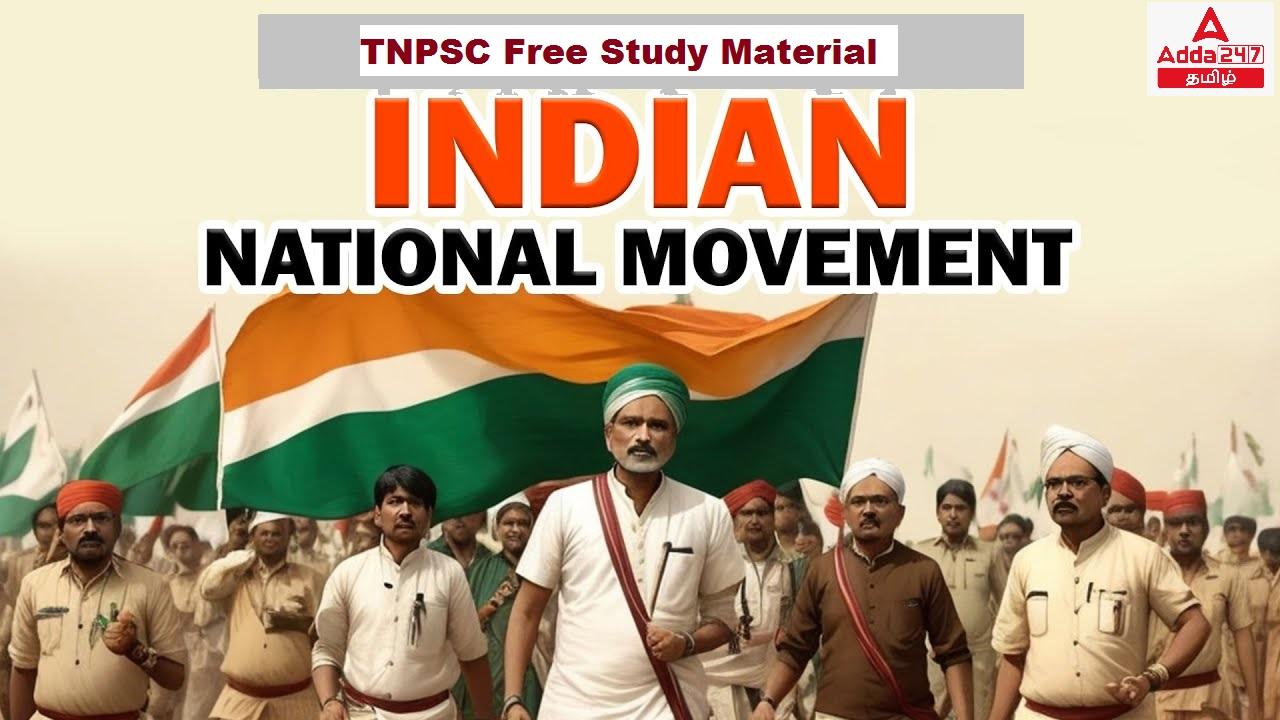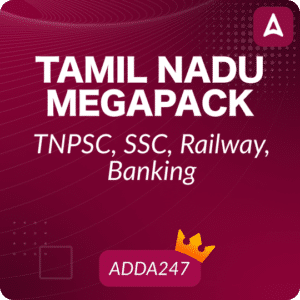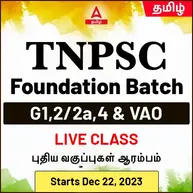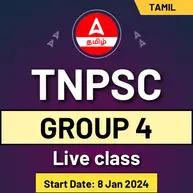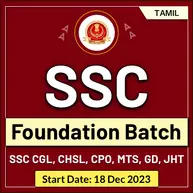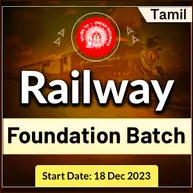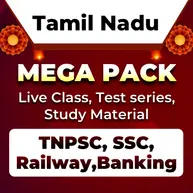இந்தக் கட்டுரையில், TNPSC குரூப் 1, குரூப் 2, குரூப் 2A, குரூப் 4 மாநிலப் போட்டித் தேர்வுகளான TNUSRB, TRB, TET, TNEB போன்றவற்றுக்கான முறைகள் இலவசக் குறிப்புகளைப் பெறுவீர்கள்.தேர்வுக்கு தயாராவோர் இங்குள்ள பாடக்குறிப்புகளை படித்து பயன்பெற வாழ்த்துகிறோம்.
Union Executive and Union Legislature
President-1
Introduction
The highest governmental body in India is the Central Government, headquartered at
New Delhi.
Sections 52 to 78 of Part V of the Constitution of India refer to the administration of the
Central Government. Our Constitution provides us with a democratic government.
The framers of the Constitution of India have given India a federal state considering the
vastness and diversity of India.
The Central Government is made up of three parts: the Administration, the Legislature,
the Judiciary.
The Union Executive consists of the President of India, the Vice-President, and the
Council of Ministers headed by the Prime Minister, and the Attorney General of India.
The Legislature is known as the Parliament. It consists of two houses, namely the Rajya
Sabha and the Lok Sabha. The Union Judiciary consists of the Supreme Court of India.
President of India
Our Constitution gives us Parliamentary Government. The Executive Head of the Central
Government is the President who is nominally the Executive Officer.
He is the first citizen of India. He is the Commander-in-Chief of the three forces. He has
the responsibility of setting up the judiciary.
According to Article 53 of the Constitution, the President exercises the executive powers
of the Central Government in accordance with the Constitution, either directly or
through his dependent officials.
Qualifications of president election
The Constitution sets out the qualifications for a presidential candidate.
Must be an Indian citizen.
Must be over 35 years of age.
Must not be in a paid position in the Central Government, State Government or Local
Bodies.
Must be eligible to become a member of the Lok Sabha.
His name must be nominated by 10 voters on the electoral committee electing the
President and nominated by 10 voters.
The President shall not hold office as a Member of Parliament or Member of the
Legislature and will probably be deemed vacant on the day of his inauguration as
President of the Republic.
Rashtrapati Bhavan in New Delhi is the residence of the President of the Republic
although his home and office are both located in the same building.
But he has two more offices with location where he visits once a year to carry out his
office work at the Retreat Building in Shimla and the Rashtrapati Bhavan in Hyderabad.
One of these is located in the north and the other in the south, which symbolizes the
unity of the country and the unity of the diverse cultures of the people.
The President is the head of the Indian State. He is the First Citizen of India and acts as the
symbol of Unity, Integrity and Solidarity of the Nation.
Entitlement to the President
He is entitled without payment of rent, to the use of his official residence (The
Rashtrapathi Bhavan).
He is entitled to such emoluments, allowances and privileges as maybe determined by
the Parliament.
The President is entitled to a number of privileges and immunities. He enjoys personal
immunity from legal liability for his official acts. During his term of office, he is immune
from any criminal proceedings.
Privileges of the President
According to Article 361(1) the President, or the Governor of a state, shall not be
answerable to any court for the exercise and performance of the powers and duties of his office
or for any act done or purporting to be done by him in the exercise and performance of those
powers and duties.
Term, Impeachment and Succession
Term
Article 56 says that the President shall hold office for a term of 5 years from the date on
which he enters upon his office.
However he can resign from his office at any time by addressing the resignation letter to
the Vice President. Further he can also be removed from the office before completion of
his term by the process of impeachment.
The President can hold office beyond his term of five years until his successor assumes
charge.
He is also eligible for re-election to that office.
Impeachment
Article 61 of the Constitution lays down a detailed procedure for the impeachment of
the President.
For the impeachment of the President, first, a charge for impeachment has to be made
in either House of the Parliament by a resolution signed by atleast one fourth of the
total number of members of the House and moved by giving atleast 14 days advance
notice.
Such a resolution must be passed by a majority of not less than two thirds of the total
number of members of the House when a charge is so presented by one House, it
should be investigated by the other House.
After the investigation, if a resolution is passed by the other house by a majority of two
thirds of its total number of members, the President stands removed by impeachment
from his office from the date of passing of the resolution.
Succession
A vacancy in the President’s office can occur in any of the following ways:
1. On the expiry of his tenure of five years
2. By his resignation
3. On his removal by impeachment
4. By his death
5. When he becomes disqualified to hold office or when his election is declared void.
If the vacancy occurs due to resignation, removal or death then election to fill vacancy
should be held within six months and the Vice President acts as the President until a
new President is elected.
Further when the sitting President is unable to discharge his functions due to absence,
illness or any other cause, the Vice President discharges his functions until the President
resumes his office.
In case the office of the Vice President is vacant, the Chief Justice of India or if his office
is also vacant, the senior most judge of the Supreme Court acts as the President or
discharges the functions of the President.
Powers of the President
The powers and functions of the President of India can be broadly classified under the following
categories.
Executive Powers
The constitution vests in the President of India all the executive powers of the Central
Government.
Article 77 requires that every executive action of the Union shall be taken in the name
of the President.
So he has to make many appointments to key-offices to run the administration.
He appoints the Prime Minister and the other members of the Council of Ministers,
distributing portfolios to them on the advice of the Prime Minister.
He is responsible for making a wide variety of appointments. These include the
appointment of
Governors of States
The Chief Justice and other Judges of the Supreme Court and high Courts
The Attorney General
The Comptroller and Auditor General
The Chief Election Commissioner and other Election Commissioners
The Chairman and other Members of the Union Public Service Commission
Ambassadors and High Commissioners to other countries
He appoints a commission to investigate into the conditions of SCs, STs and other
backward classes
He is the supreme commander of the defence forces of India, in this capacity the
President can appoint Army, Navy, and Air Chiefs
Legislative Powers
The President is an integral part of the Union Parliament. He inaugurates the session of
the Parliament by addressing it after the Government.
The President summons Parliament at least twice in a year.
He may send messages to either House of the Parliament with respect to a bill pending
in the House. All bills passed by the Parliament become “Laws of Acts” only after getting
assent of the President.
Money bills cannot be introduced in the Parliament without his approval.
President terminates the sessions of both or any of the Houses of Parliament.
He can even dissolve the Lok Sabha before the expiry of the term of the House.
He nominates 12 persons who are eminent in literature, science, sports, art and social
service to the Rajya Sabha.
He can also nominate two persons belonging to Anglo- Indian Community to the Lok
Sabha, if in his opinion, that community is inadequately represented.
Financial Power
Money bill can be introduced in the Parliament only with his prior recommendation.
Annual Budget of the Central Government is presented before the Lok Sabha by the
Union Finance Minister only with the permission of the President.
The Constitution of India places the Contingency Fund of India is at the disposal of the
President.
No demand for a grant can be made except on his recommendation.
He can make advances out of the contingency fund of India to meet any unexpected
expenditure.
He constitutes a finance commission after every five years or on the demand of the
states to recommend the distribution of revenues between the Centre and the States.
Judicial Powers
Article 72 confers on the President power to grant pardons, reprieves, respites or
remissions of punishment, or to commute the sentence of any person convicted of an
offence.
In all cases where the punishment or sentence is by a court-martial, in all cases where
the punishment or sentence is for and offence against a Union law, and in all cases
where the sentence is a sentence of death.
The President is not answerable to any court of law for exercise of his/her power
(however, he can be subjected to impeachment by the Parliament).
Military Powers
Article 53(2) lays down that “the supreme command of the Defence Force of the Union
shall be vested in the President and the exercise thereof shall be regulated by law”.
The President is thus declared to be the Supreme Commander of the Defence Force of
the country.
In the exercise of this power, it is the President, who can declare war against a country
and make peace.
Diplomatic Powers
The President appoints Indian diplomats to other countries and receives foreign
diplomats posted to India.
All treaties and agreements with foreign States are entered into, in the name of the
President.
Emergency Powers
The President has been empowered by the Constitution to proclaim Emergency.
Article 352 confers power on the President to make a proclamation of Emergency on
the grounds of war, external aggression, or armed rebellion. This is known as the
National Emergency.
Article 356 confers power on the President to proclaim State Emergency by declaring
that the Government in a State cannot be run on in accordance with the provisions of
the Constitution.
Under Article 360, the President is vested with the power to proclaim Financial
Emergency, if he is satisfied that the financial stability or, the credit of India or any part
of India is threatened, by any reason.
Kerala and Punjab are the States where the President’s Rule was imposed for the
maximum number of times i.e., nine times in both States.
**************************************************************************
| Adda247 TamilNadu Home page | Click here |
| Official Website=Adda247 | Click here |

